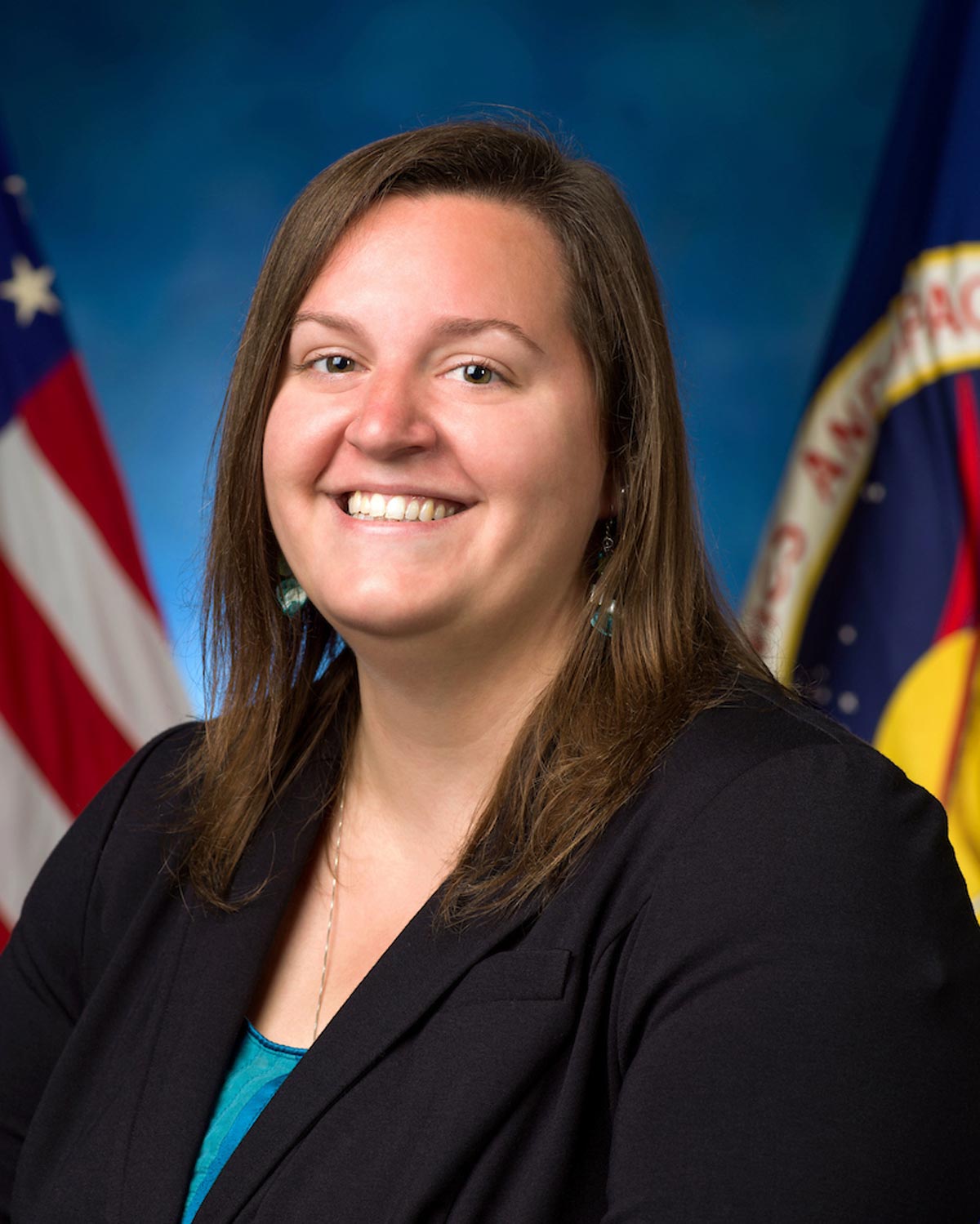PROFILE
On a Mission
Kelsey Herrmann ’09 is orchestrating a critical moon operation for NASA
by Brooke Thames
THE MYSTERY AND WONDER of the solar system spark space-exploration fantasies for many children — Kelsey Herrmann ’09 included. Long before she majored in mechanical engineering at Bucknell, Herrmann dreamed of becoming an astronaut.
In time, she realized she didn’t need to physically be in space to reach for the stars. There is an expansive universe of technicians, designers and engineers deeply involved in the operations that enable missions to happen. And today, Herrmann is one of them. As a NASA flight director, Herrmann is working on the Artemis lunar rover, the Volatiles Investigating Polar Exploration Rover (VIPER). In 2024, VIPER will embark on a 100-day mission to collect information about the water at the south pole of the moon, which will help scientists better understand what resources are available for future human missions.

Photo credit: Josh Valcarcel, NASA, Johnson Space Center
Kelsey Herrmann ’09 is helping NASA explore one of the coldest spots in the solar system.
Herrmann has always loved building things, which made engineering a natural pursuit. Bucknell offered a strong and supportive engineering program, which lured Herrmann across the country from her hometown of San Mateo, Calif.
When tragedy stuck — Herrmann’s brother passed away from cancer her junior year — she says Bucknell’s faculty, particularly Professor Keith Buffinton, mechanical engineering, provided compassion, flexibility and support that enabled her to stay on track and graduate on time.
Herrmann eventually went on to pursue her master’s in aerospace engineering at the University of Washington. While there, she landed two internships with NASA, which solidified her ultimate career goal: “After that, it was like, all right, it’s NASA or bust.”
Since joining NASA in 2016, Herrmann has held several operations positions for the International Space Station (ISS). “Working in operations is as close to being in space as you can get while being on the ground,” she says. “You’re talking to the astronaut or the space vehicle from a control center, helping them solve problems.”
It’s work that satisfies her hunger for discovery: “I like the endless possibilities of space,” she says. She also likes knowing her work can help the greater good. “A lot of the research on the ISS is medical-related,” she says. “They are hoping to help us better understand things like heart disease, Parkinson’s and cancer.
“Being part of that is pretty cool. It’s hard for anything to be cooler than space exploration.”